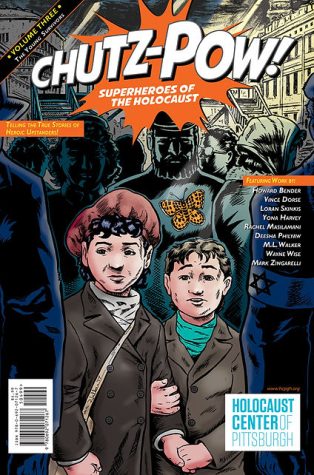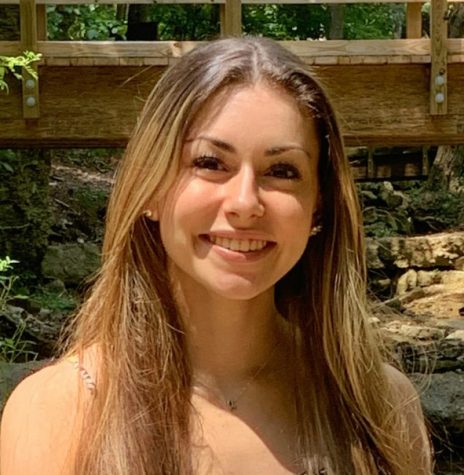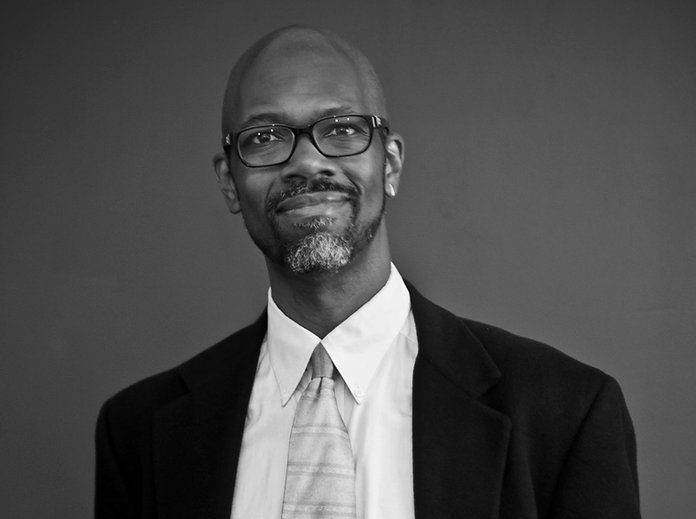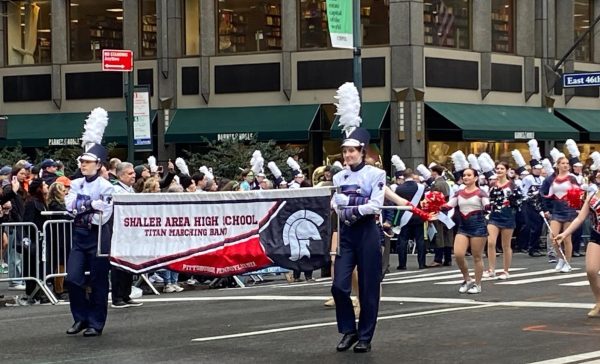Artist uses comics to highlight Holocaust “superheroes”
Marcel Walker has a mission of championing comic books as a force for social good. He’s currently the Lead Artist and Project Coordinator for CHUTZ-POW! SUPERHEROES OF THE HOLOCAUST.
“There are three things I always want people to remember about comics especially when we are doing this kind of work: comics have always been for everyone, comics are literature, and comics foster communication through engagement.”
Marcel Walker has known that he wanted to make comics since he was six years old. Today, he is the project manager for the comic books, CHUTZ POW, which tell the heroic stories of survivors of the Holocaust. His dreams came true, mostly due to the many heroes that he has in his life.
Walker grew up in Pittsburgh and quickly found his passion for making comics through his love for Superman. By the time he was eight, he was able to tell you everything there was to know about Superman. Superman was, and continues to be, one of his heroes.

Two other heroes in his life were his mom and aunt, who brought him up and raised him to be the person he is now. Walker often says, “in my life, there’s life before Superman and there’s life after Superman.” He means that literally and metaphorically. His aunt was born the year before Superman was first published and his mom was born a year after that. However, these three people were also great influences in his life as they encouraged him to pursue his interest in comics.
Walker was self-taught until he was about 17. He then graduated high school early and attended the Art Institute of Pittsburgh. He went through a two-year program and freelanced for a while after. Eventually, he got a day job and began teaching comics creation at the Pittsburgh Center of Community Arts. In 2014, Walker was hired to become a part of the CHUTZ POW project.
“CHUTZ POW was created to be utilized in schools, but it can be read by general audiences. It is accessible to anyone. I wasn’t literally at the table when it was created, I came in very soon after and that’s how it was described to me and I instantly got it and saw it’s value,” Walker said.
Four volumes of CHUTZ POW have been produced since 2014, each with their own theme. Volume 1 was the introductory volume that told the stories of survivors who came to Pittsburgh after the Holocaust. Volume 2 widened the lens and focused on national heroes. Volume 3 told the stories of youth who lived through the Holocaust. Finally, the most recent volume, Volume 4, “focused on the specificity of women’s stories because that deserved that kind of attention,” Walker said. Although to call them just survivors would be a huge understatement.
“We use the metaphor “superheroes” because there are three things that we focus on in every CHUTZ POW story: resilience, resistance, identity. You are not a superhero because you survived the Holocaust per say. We refer to them as superheroes because they focused on these three things that got them through however far they got,” Walker said.
Resilience was shown through their ability to maintain their sense of self. Resistance was shown against the forces that were there to extinguish them and their own personal identity. They also were able to retain their identity even through the struggles they faced. This is what makes these survivors heroes. Yet, telling these heroic stories comes with some pressure.
“The main pressure is you want to make sure you get it correct as much as possible, but you also want to make sure you tell stories in an interesting way that readers are going to understand and be engaged with. So there is a balance, you want to get it right, do right by the survivors, you want to make sure the details are correct, visually and grammatically, and you want to make sure it’s engaging. It can be a challenge especially when you only have a few pages to do it,” Walker said.
These challenges though do not keep him from telling their stories so other people can become educated as to what really occurred during the Holocaust. As far as CHUTZ POW goes, Walker thinks the project could go up to at least ten volumes in future years. He continues to want to share these survivors’ stories with the world so they can continue to live on for generation to generation.
“While CHUTZ POW’s core identity is Jewish stories,” Walker said, “it is for everybody and the only way for it to be for everybody is if we all get involved in telling and retelling and keep retelling these stories.”

Hi I’m Addie! I am a senior at Shaler Area High School and this is my second year working for The Oracle. When I’m not writing an article, I enjoy...








